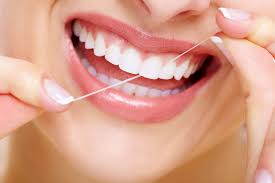Dental care experts say that most people will experience gingivitis at some point in their lives. While gingivitis may be considered a mild form of gum disease, it can still cause changes in color and appearance of gums, as well as, cause discomfort and pain if left untreated. Gums that may bleed, are swollen, are very tender to the touch, or are sore indicate that there may be a presence of this disease.
Here are five suggestions offered by dental care providers to help prevent this type of gum problem. Following these tips may also benefit a person by reducing the risk of developing the more serious gum disease called periodontitis.
BRUSH YOUR TEETH AT LEAST TWICE A DAY
Brushing your teeth on a regular basis does not only prevent gingivitis but is very vital in your overall oral care. This should be done at least twice a day or three times for better results. Ideally, you should be brushing your teeth in the morning upon waking up and in the evening before going to bed. Toothbrushes should be replaced every three months or when bristles become frayed. Read more about toothbrush care in How Often Should You Change Your Toothbrush?
MAKE FLOSSING A DAILY HABIT
Flossing should not be done only when a particle is stuck between your teeth. It should be a daily habit done in order to prevent the buildup of plaque in areas that cannot be reached by the toothbrush. You may want to get advice from your dentist or hygienist on how to do proper flossing. Parents should floss their kids’ teeth until age eight to 10 and then supervise the child until they can start flossing by themselves.
GET ADDITIONAL PROTECTION BY USING A MOUTH RINSE
Aside from giving you that sweet-smelling breath, regular rinsing reduces the risk of gingivitis by controlling plaque. Those who may already suffer gingivitis will find great relief with the reduction of its severity, largely due to the antimicrobial effect. If unsure of which mouth rinse to use, you may ask your dentist for a suggestion or a prescription.
OBSERVE A HEALTHY AND PROPER DIET
Like the teeth, gums may also be adversely affected by food that is rich in sugar. This is due to the bacterial by-products consisting of the high content of acids and destructive enzymes which destroy tooth enamel and cause gum damage. While it may be difficult for some to keep up with a healthy diet, it would help to take measures that limit the undesirable dental effects of sugary foods and drinks by brushing or rinsing right after consumption.
QUITTING THE SMOKING HABIT
Many may not be aware of this, but smoking can bring havoc to your teeth and gums. It does not only tarnish your teeth or give off an offensive smell, but it may contribute to the onset of gum diseases such as gingivitis and periodontitis. It would appear that the only solution for this problem is to quit the smoking habit.
IMPORTANCE OF HAVING REGULAR DENTAL VISITS
Very importantly, not just in the prevention of gingivitis but also in your overall dental care, is the suggestion that you make it a point to regularly visit your dentist at least every six months. This will allow your dentist to examine your mouth for health and for hidden signs of problem areas so that appropriate action can be taken in a timely manner – before extensive work is required. This may include cleaning of teeth and gums, fixing broken teeth, and offering advice on dental care maintenance.
To book your dental check up, contact us at 519-305-9100.

